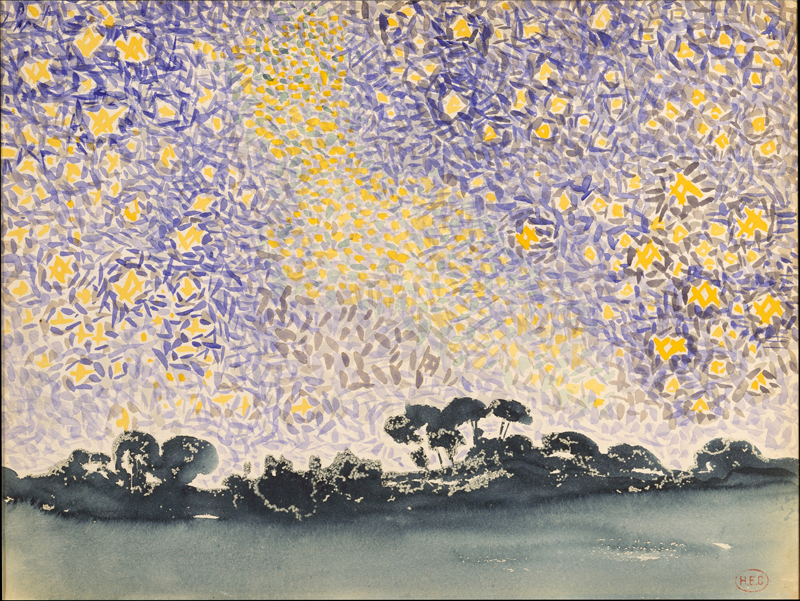
Landscape with Stars - Henri-Edmond Cross, ca.1906
My dear friends,
In Genesis 15:1-6, God reassures Abram (later Abraham) by promising him innumerable descendants, symbolized by the countless stars in the sky. This promise of abundance and continuity, despite Abram’s initial concerns about being childless, serves as a symbol of divine blessing and the fulfillment of a covenant that extends far beyond Abram’s present circumstances. Abram’s belief in this promise is deemed righteous, solidifying the relationship between faith and righteousness.
"Do not be afraid, Abram, I am your shield; your reward shall be very great."
But Abram said, "O Lord GOD, what will you give me, for I continue childless,
and the heir of my house is Eliezer of Damascus?"
And Abram said, "You have given me no offspring, so a slave born in my house is to be my heir."
But the word of the LORD came to him,
"This man shall not be your heir; no one but your very own issue shall be your heir."
He brought him outside and said,
"Look toward heaven and count the stars, if you are able to count them."
Then he said to him, "So shall your descendants be."
And he believed the LORD, and the LORD reckoned it to him as righteousness.
Comparing this to the Four Immeasurables in Buddhist thought, there is an interesting parallel. The Four Immeasurables (or Brahmavihāras, "Divine Abodes") — loving-kindness, compassion, empathetic joy, and equanimity — are directed toward all sentient beings, which are also described as innumerable or countless. The Bodhisattva's aspiration in Buddhism to cultivate these qualities toward all beings is vast and boundless, much like the stars symbolizing Abram’s descendants.
May all beings be free of suffering and the causes of suffering.
May all beings never be separated from empathetic joy.
May all beings dwell in equanimity, free of attachment and aversion.
Both the stars and the innumerable beings represent an expansive, almost ungraspable number, evoking a sense of the infinite. In the biblical context, Abram’s descendants represent physical continuity and the fulfillment of divine promise, whereas in Buddhism, the countless beings represent the scope of one’s compassion and the vast field of spiritual practice. In both cases, there is a move from the finite (Abram's concern about his single heir, or the individual’s limited sense of self) to the infinite (an unbounded legacy or the infinite field of beings deserving of compassion). Both symbols inspire a movement beyond the self into a broader, more universal view.
The uncountable stars thus serve as a metaphor for expansiveness, whether in terms of faith and promise in the biblical tradition or love, compassion, joy and equanimity in Buddhism.